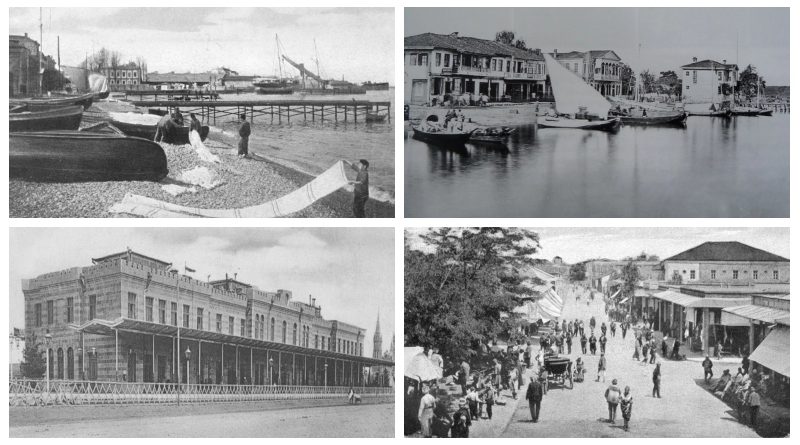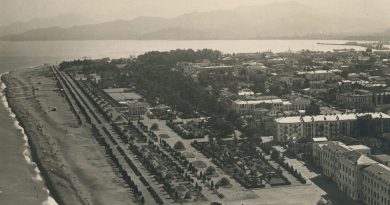Batumi – history in one word
The historical silk road connecting Europe-Asia, convenient and deep harbor, moderate climate, rich and fabulous flora and fauna, distinctive terrain and amazing atmosphere made Batumi unique and attractive since ancient times. Therefore, it had many guests and visitors at all times. Interest in the city increased especially since the 80s of the XIX century, when Batumi was connected to Tbilisi by railway and the Baku-Batumi oil pipeline was built, which gave the city international importance.
At the beginning of the XX century, Batumi was visited by many visitors, and there were about thirty hotels in the city. Foreign travelers and researchers compared Batumi to Riviera”; with its natural conditions and predicted its great future. The famous nresearcher and traveler Nicholas Veru wrote: ”In Batumi, the splendor of the Riviera and the majestic mountains of Switzerland come together in harmony. There is less strong wind here.”

”Batumi” etymologically comes from the Greek word ”Bathus”, which means deep. The meaning of the name and its origin help us get to know the city better. The specific name was determined by the fact that Batumi is distinguished by a deep and convenient bay in the Black Sea. The first reports about Batumi should belong to Aristotle (IV century BC). ”Bathea” which means ”depths” in Greek, is considered by some scholars to mean Batumi. Batumi, as a city is already mentioned in 400 AD, by Plinius (23-79 AD) in the forms of ”Batha”, ”Bathium”. The second Roman writer and statesman – Arrian, who, like Pliny, visited the coasts of Kolkheti and Kartli, does not name any settlement in the territory of Adjara except Apsarunt. He refers the river with the name ”Bathis”, which is phonetically close to the modern name of Batumi.
Based on the analysis of ancient sources, historian Kaukhchishvili concluded that the inclusion of Batumi on the world map meant that Batumi was an important city and harbor in the II century. Only Batumi had such a bay, which was at the great trade crossroads of East and West, and it was an excellent natural harbor for ships. In the 19th century, the introduction of Porto-Franco in Batumi, the connection with the outside world by railway and the launch of the oil pipeline between Baku and Batumi significantly increased and expanded the territory of the city. An impetus was given to the development of trade and handicrafts. Libraries, schools, gymnasiums, factories were built. Since 1881, the latest means of communication have been introduced, namely, on April 1, 1885, the first telephone call was made in Batumi.

Today, Batumi is an outstanding pearl of Adjara and Georgia. The seaside city is known as one of the most attractive tourist destinations in Georgia thanks to its unique combination of old and new architectural buildings, cultural heritage sites, beautiful sea views, European-style architecture and cultural diversity. With seaside boulevard, European squares and streets, world-brand high-class hotels and cafes, Batumi is the best face of modern Georgia, the rich and ancient history of which attracts many historians and researchers from different parts of the world.




